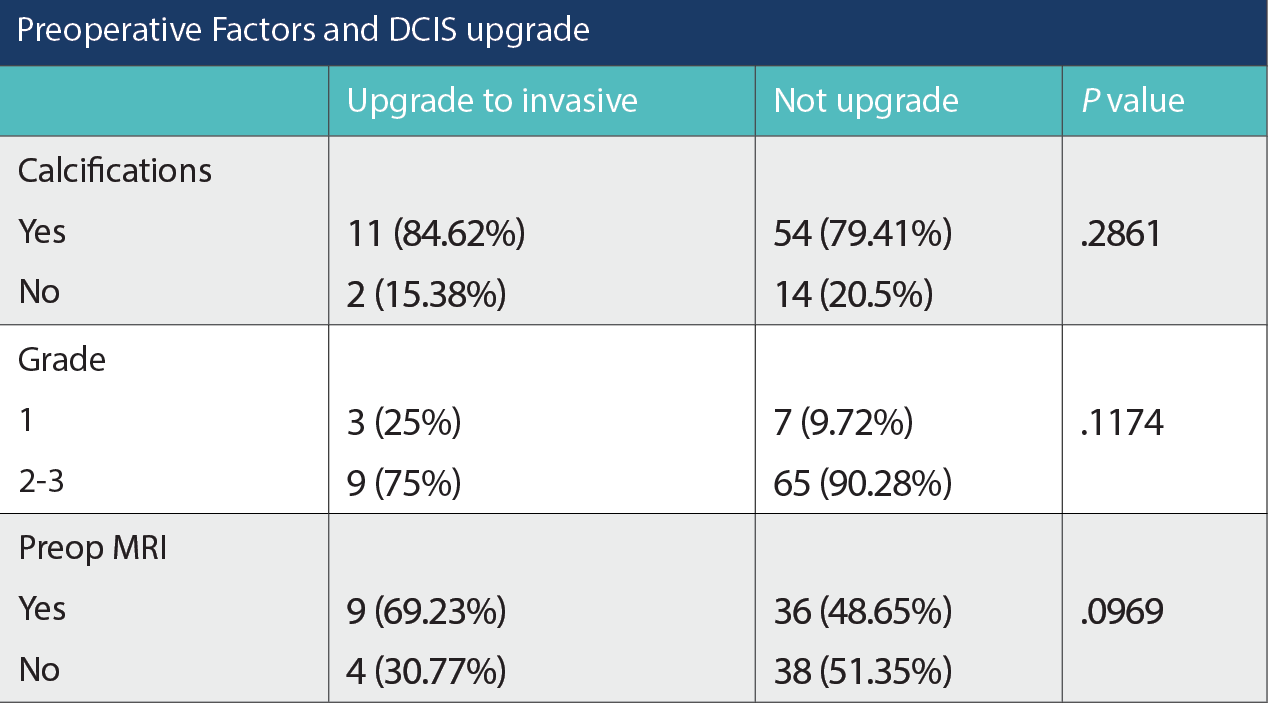47 Can We Identify Factors That Predict DCIS Upgrade to Invasive Cancer at Mastectomy?
Background
Ductal carcinoma in situ (DCIS) identified on core needle biopsy is upgraded to invasive breast carcinoma (IBC) on definitive surgical excision at a rate of 15% to 50%. Current guidelines recommend ipsilateral sentinel lymph node biopsy at the time of mastectomy performed for DCIS for preemptive axillary staging in the event of upstaging on final pathology. The goal of this study was to identify preoperative risk factors associated with upstaging to IBC on final pathology as an indication of which patients would most likely benefit from sentinel lymph node biopsy at the time of mastectomy.
Methods
This is a single-institution, 20-year retrospective review of women 50 years and older undergoing mastectomy as definitive surgical therapy for a preoperative diagnosis of pure DCIS who had clinically negative lymph nodes. Multiple preoperative data points were examined including imaging appearance of the lesion, multifocal vs single lesion, histologic subtype of DCIS, grade, presence or absence of necrosis, prior history of high-risk lesions, and whether a preoperative MRI was obtained. LOGISTIC procedure (SAS) was used for statistical analysis.
Results
Preoperative Factors and DCIS upgrade

The upgrade rate from pure DCIS to invasive carcinoma on final pathology at our institution was 15%. Of the factors examined, none were statistically significant. Calcifications on imaging, intermediate-/high-grade DCIS, and preoperative MRI use were associated with trends toward upgrade to IBC on final surgical pathology.
Conclusions
As management of breast malignancy moves toward de-escalation of axillary surgery, preoperative identification of those patients who would benefit from a more aggressive approach would help with optimal surgical treatment planning. Our study, while not showing a prevailing predictive factor for upgrade on final pathology, does show promising trends that should prompt further investigation. It is particularly notable that preoperative MRI use was not associated with a lower upgrade rate on final pathology, which is consistent with multiple studies showing that the routine use of breast MRI in preoperative evaluation does not improve cancer outcomes with invasive carcinoma.
